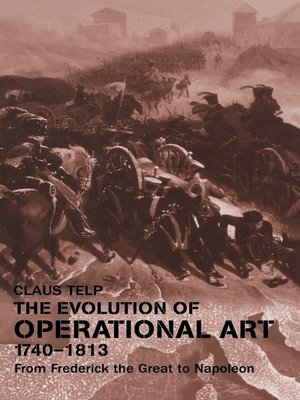The Evolution of Operational Art, 1740-1813
ebook ∣ From Frederick the Great to Napoleon · Military History and Policy
By Claus Telp

Sign up to save your library
With an OverDrive account, you can save your favorite libraries for at-a-glance information about availability. Find out more about OverDrive accounts.
Find this title in Libby, the library reading app by OverDrive.



Search for a digital library with this title
Title found at these libraries:
| Library Name | Distance |
|---|---|
| Loading... |
Operational art emerged from the campaigns of Frederick the Great to the end of the Napoleonic Wars. It was the result of three dynamic interrelationships: between military and non-military factors such as social, economic and political developments; between military theory and practice; and between developments in military theory and practice in France and Prussia. In the period 1740-1815 a major change in the complexity of warfare took place. This was reflected by an increase in the complexity of the analysis of warfare via the introduction of the operational level between the strategic and tactical levels.The evolution of operational art, driven by these three dialectical processes, evolved in stages. In the first stage, Revolutionary France had experimented with operational art though with limited success. Then, Napoleon had used it with remarkable success against an adversary clinging to outdated modes of warfare and organisation. In the final stage, Napoleon's operational art was successfully challenged by the Prussian brand.







